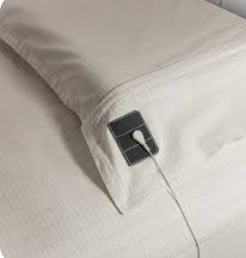Journey to a Restful Galaxy: Your Ultimate Guide to Holistic Sleep Wellness
How can a holistic approach improve sleep in Australia? Holistic sleep wellness in Australia and the UK combines sleep-friendly environments, calming rituals, grounding tools, and mindful habits. From bamboo bedding to aromatherapy and grounding sheets, this guide helps you reclaim restful nights and vibrant days—naturally.
Unveiling the Night's Thieves: Common Culprits & Root Causes of Poor Sleep
The Pillars of Holistic Sleep Improvement: Nurturing Mind, Body, and Environment
The Mind-Body Connection: Cultivating Calm for Restful Nights
- Meditation and Mindfulness: Regular meditation, even for just 10-15 minutes a day, can significantly reduce stress and improve sleep. Mindfulness practices, which involve paying attention to the present moment without judgment, can help quiet a racing mind at bedtime.
- Breathwork: Simple deep breathing exercises can activate the body’s relaxation response, signaling that it’s safe to unwind and rest.
- Yoga and Gentle Stretching: Practices like Hatha yoga or Yin yoga, which involve slow movements and deep stretching, can release physical tension and calm the mind, preparing the body for sleep.
- Journaling: Writing down worries, thoughts, or a gratitude list before bed can help clear the mental clutter, making it easier to drift off.
Nourishing Your Body: The Role of Diet and Hydration in Sleep
- Balanced Diet: Prioritize whole foods, including plenty of fruits, vegetables, lean proteins, and complex carbohydrates. Avoid heavy, spicy, or overly sugary meals close to bedtime, as they can cause indigestion or blood sugar fluctuations that interfere with sleep.
- Key Nutrients for Sleep: Magnesium (found in leafy greens, nuts, and seeds) and tryptophan (found in turkey, nuts, and seeds) are known to support sleep. Consider incorporating these into your diet naturally.
- Hydration: Staying adequately hydrated is important for overall health, including sleep. However, try to limit fluid intake in the couple of hours before bed to avoid nighttime bathroom trips.
- Herbal Teas: Certain herbal teas, like chamomile, lavender, or valerian root, have calming properties and can be a soothing part of a bedtime routine. Ensure they are caffeine-free.
Creating a Sleep Sanctuary: Optimizing Your Bedroom Environment
- Darkness: Ensure your room is as dark as possible. Use blackout curtains if necessary, as light can suppress melatonin production.
- Quiet: Minimize noise disruptions. Consider earplugs or a white noise machine if your environment is noisy.
- Cool Temperature: Most people sleep best in a cool room, typically between 15-19°C (60-67°F).
- Comfortable Bedding: Invest in a comfortable mattress, pillows, and natural, breathable bedding materials.
- Declutter and Calm: A tidy, uncluttered room promotes a sense of peace. Consider calming colors and decor.
- Aromatherapy: Certain scents, like lavender or chamomile, diffused in the bedroom can promote relaxation.
- Grounding Techniques: Some individuals find benefit in practices like using grounding sheets or mats. The concept of grounding, or earthing, involves connecting with the Earth's natural energy. While research is ongoing, proponents suggest it can help reduce stress and improve sleep. If you're curious about what grounding sheets are and the science behind them, exploring this natural approach could be a valuable addition to your holistic sleep strategy.
Lifestyle Rhythms and Routines: Syncing with Your Natural Clock
- Consistent Sleep Schedule: Try to go to bed and wake up around the same time each day, even on weekends, to reinforce your natural sleep rhythm.
- Manage Screen Time: Avoid screens (phones, tablets, computers, TV) for at least an hour before bed. The blue light emitted can interfere with melatonin production.
- Daily Movement and Exercise: Regular physical activity can significantly improve sleep quality. Aim for at least 30 minutes of moderate exercise most days, but try to avoid intense workouts close to bedtime.
- Evening Wind-Down Ritual: Create a relaxing routine in the hour before bed. This could include a warm bath, reading a physical book (not on a screen), listening to calming music, or practicing gentle stretching. The duration and consistency of such practices, including how long one might engage in activities like Grounding Mat Benefits for Sleep & Inflammation Relief in Australia, can be key to their effectiveness.
Actionable Holistic Sleep Rituals: Your Starlight Checklist
- Mindful Unwind: Dedicate 15-30 minutes before bed to a calming activity: meditation, gentle yoga, deep breathing, or journaling.
- Digital Sunset: Power down all screens at least one hour before your intended bedtime.
- Consistent Cadence: Aim to sleep and wake around the same time daily, even on weekends.
- Nourish Wisely: Avoid heavy meals, caffeine, and alcohol in the hours leading up to sleep. Opt for a light, sleep-friendly snack if needed, or a calming herbal tea.
- Sanctuary Prep: Ensure your bedroom is dark, quiet, cool, and comfortable. Consider aromatherapy with lavender or chamomile.
- Daylight & Movement: Get some natural daylight exposure in the morning and incorporate regular physical activity into your day (but not too close to bedtime).
- Grounding Connection: Explore tools that may enhance your sleep environment, such as grounding sheets or mats. Understanding the benefits of grounding mats for sleep and overall health can offer another avenue for creating a restful space.
Navigating the Cosmos: When to Seek Further Support
Conclusion: Awakening to a Brighter, Well-Rested Universe
FAQs About Holistic Sleep Wellness
Q1: What is holistic sleep wellness?
A: Holistic sleep wellness is a full-body approach to better rest. It combines nutrition, mental calm, bedroom environment, and lifestyle routines to improve sleep quality naturally.
Q2: How can grounding sheets help with sleep?
A: Grounding sheets connect your body to the Earth’s energy, which may reduce stress, inflammation, and promote deeper, more restorative sleep. Learn more about What Are Grounding Sheets? Discover the Science and Benefits
Q3: What are the best bedroom conditions for sleep?
A: A cool, dark, quiet room with breathable bedding and calming scents like lavender helps cue your body for sleep. Bamboo sheets and blackout curtains are great additions.
Q4: What are effective pre-sleep rituals?
A: Try meditation, journaling, herbal tea, gentle stretching, and a digital sunset—avoiding screens an hour before bed.
Q5: When should I seek help for sleep issues?
A: If you struggle with falling or staying asleep consistently, or suspect a sleep disorder, consult a healthcare professional or sleep specialist.





